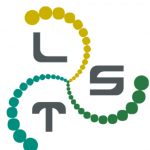LEGAL INFORMATICS
The Legal Informatics track will cover AI and Law, Legislative Informatics, Legal Information Systems, Computer Forensics. In particular:
1. eGovernment. The group considers eGovernment holistically, not as a temporary phenomenon but as a modus operandi that involves (a) ICT and public law; (b) reengineering processes in the public administration; (c) document management and legal knowledge management and communication; (d) identification tools; (e) eLearning for the public administration (TRIAS project1, offering a European Master in eGovernment); (f) eHealth, XML standards for managing the Electronic Medicine Record (I-Care project2); (g) analysing the legal aspects of telemedicine, and (h) Information Systems for the health.
2. ICT Legal Sources Modelling. Student will be provided with a strong background in (a) modelling legal resources with legal XML standards and Semantic Web techniques aimed at managing and updating the law; (b) developing legal information systems, with a legal drafting editor capable of managing the entire lifecycle of the legislation process in different environments and different languages, with different legal traditions and using different standard techniques (DTD or XML-schema); (c) eLegislation, eParliament and
eParticipation for modelling the document management flow; (d) creating legal ontologies and Semantic Web models; (d) XML-isation project in Parliament (European Parliament, Pan-African Parliament, Latin American Parliament); (e) XML legal knowledge modelling of law and judgment to allow legal reasoning.
4. eLearning. (a) eLearning theory and platforms for eCourses in ICT and Law; (b) Web 2.0 for Law eLearning such as blog, wiki, YouTube, etc.
5. Computer forensics. The usage of computers in everyday life means there is more digital available which can be used in civil and criminal cases, which requires appropriate techniques and legal procedures. In Europe does not have a long tradition of this science, but in the USA, well-known protocols have been defined and used in court. Europe needs to improve and enrich these competences.
6. Logic formalisation of norms and legal reasoning. The logic formalisation of norms is a traditional topic of the AI and Law community in order to apply legal reasoning tools. Argumentation, defeasible logic, deontic logic are only some topics to work in this field.
7. Legal information system. Courts, parliaments and public administrations work more efficiently if they use legal information systems for justice, government, and healthcare modernization.

 LAST-JD
LAST-JD 










